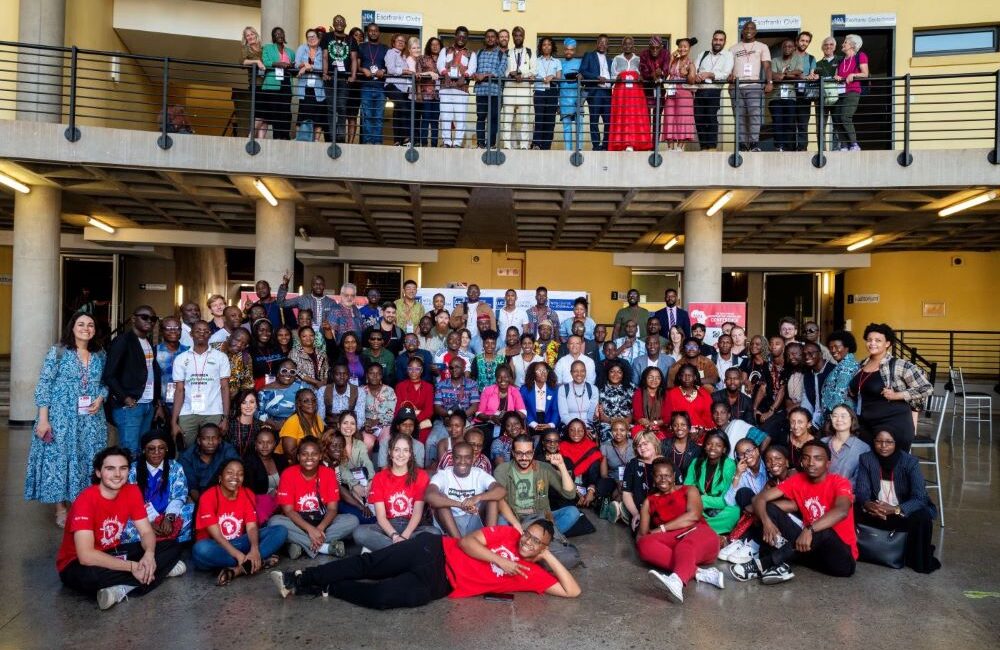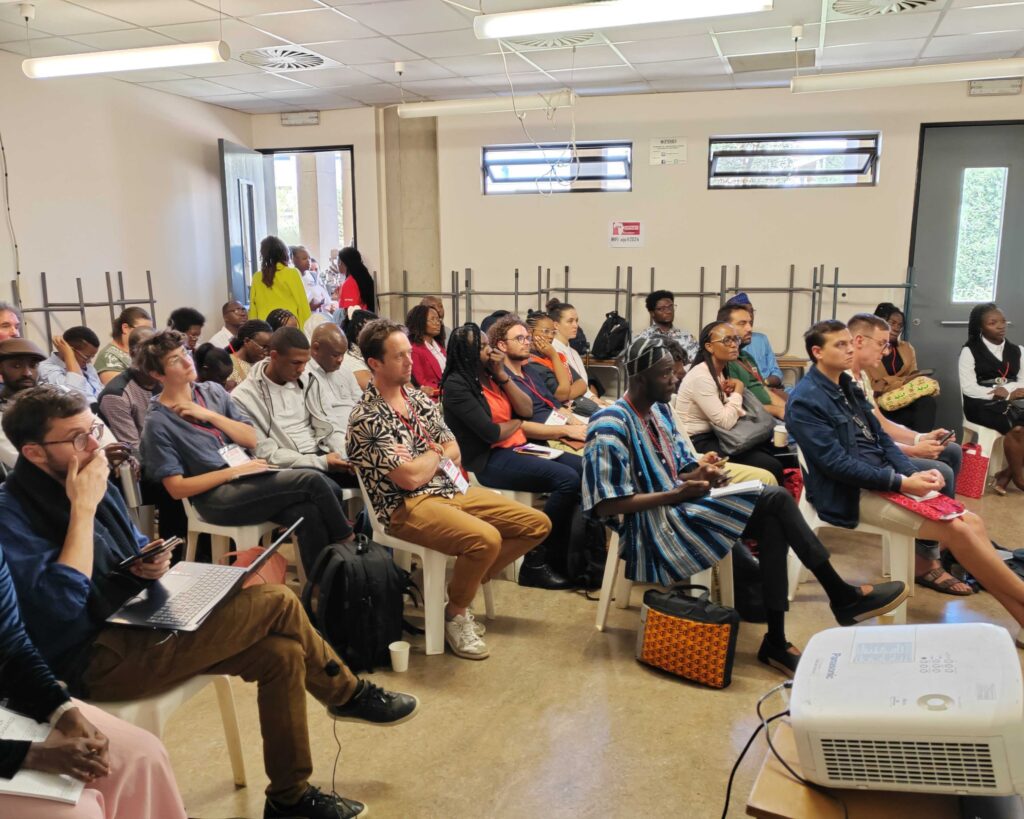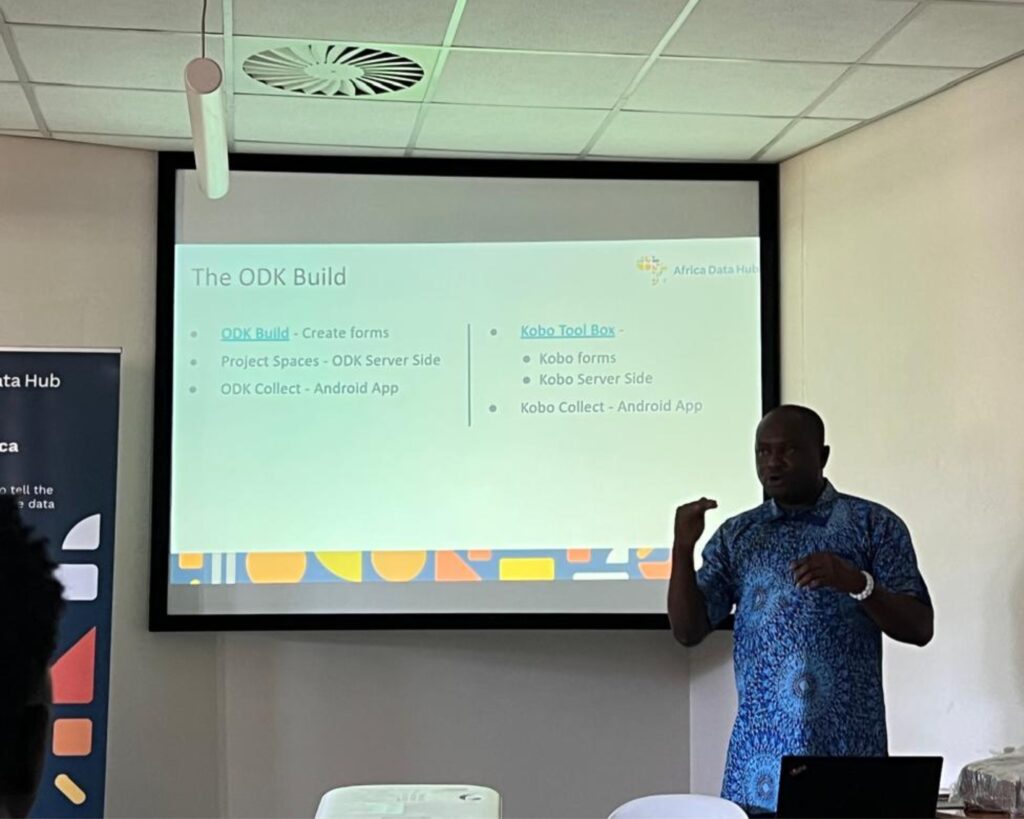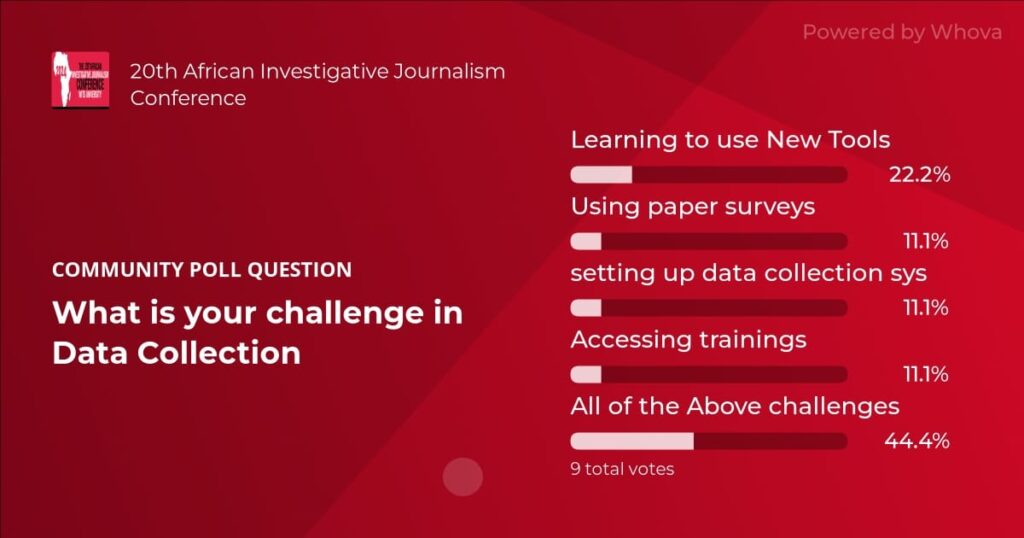Orodata Science was a key participant at the African Investigative Journalism Conference (AIJC) 2024 in South Africa.. The 20th edition of Africa’s largest gathering of working journalists came to a close on 1 November, with over 450 delegates from 55 countries around the world leaving Wits University richer for the experience in the knowledge gained and new connections made.
The conference provided a platform for data-driven storytelling and investigative innovation.
A Spotlight on Data-Driven Healthcare
One of the standout sessions featured our very own John Eromosele, a civic technologist and data protection expert, who presented on leveraging the “Primary Healthcare Data Tool” for investigative reporting. His presentation resonated deeply with participants, offering practical insights and tools for impactful health journalism.
“This is not my first participation at the largest gathering of Investigative Journalists in the continent and every year only gets better and Intriguing. – John Eromosele”
Key Takeaways from the Session:
- Overview of the My PHC Project: John introduced the My PHC Project, a groundbreaking initiative aimed at bridging the data gap in Nigeria’s healthcare system. By utilizing geo-referenced maps and verified datasets, the project empowers journalists and policymakers to uncover systemic issues and drive accountability.
- Showcase of the CheckMyPHC Tool: Central to his talk was the CheckMyPHC Tool, an open-access platform developed by Orodata Science and Africa Data Hub. The tool enables users to explore data on healthcare facilities, assess resource distribution, and identify gaps in service delivery. John demonstrated how journalists can use this tool to craft compelling narratives backed by robust data.
- Field-Based Learning: Sharing experiences from the field, John highlighted challenges such as infrastructure deficiencies in rural PHCs and the importance of community engagement in data collection. These stories underscored the value of integrating human perspectives with quantitative data.
- Practical Application of Data Tools: Attendees were guided on how to deploy open-source tools like ODK Collect and Kobo Toolbox for offline data collection, ensuring accessibility even in remote areas. These tools—customizable, secure, and user-friendly—serve as cornerstones for effective field reporting.
A Typical Experience Attending AIJC 2024 Sessions
The conference is designed to allow attendees and speakers leverage the Whova mobile tech in networking, accessing sessions choice sessions and announcements. There were translations especially from English to French and vice versa. Almost every attendee would notice Anas Aremeyaw Anas- A Ghanaian investigative journalist and a lawyer who is. Known for his undercover investigations, exposing corruption, human rights abuses and injustices.
The Whova App allows for Participants to open up topics for discussions, amongst which are topics around Newsroom Collaborations, Fellowships / Grant opportunities, Data Collection Interested Persons amongst others. Orodata Science used the conversation in the “Data Interested Persons” group to Map challenges faced by Journalists in data collection.
A Poll that Mapped Challenges faced by Journalists in Africa – Credit Eromosele John AIJC 2024
Beyond the Session
AIJC 2024 offered a wealth of opportunities to connect with journalists, learn from experts, and explore the latest trends in investigative journalism. Attendees also explored topics such as:
- Earth Observation for Climate Change: Leveraging satellite data to monitor environmental impacts.
- Data on Femicide in Kenya: Using data to uncover gender-based violence trends.
- Health and Climate Intersections: Understanding the complex relationship between health and climate change.
- Fact-Checking and Disinformation: Combating misinformation with evidence-based reporting.
By participating in AIJC 2024, Orodata Science reaffirmed its commitment to empowering journalists with the tools and knowledge necessary to investigate and report on critical healthcare issues. We strive to leverage data-driven insights to improve healthcare access, quality, and equity.




